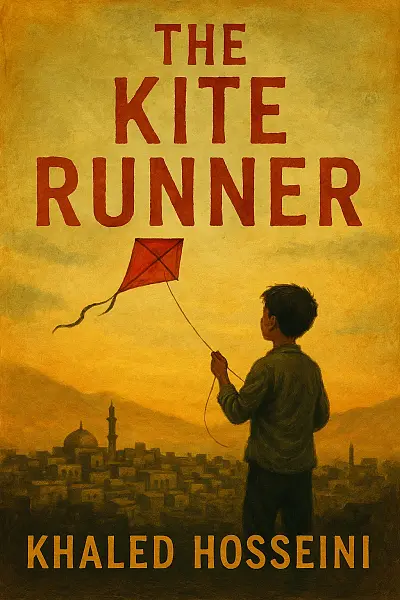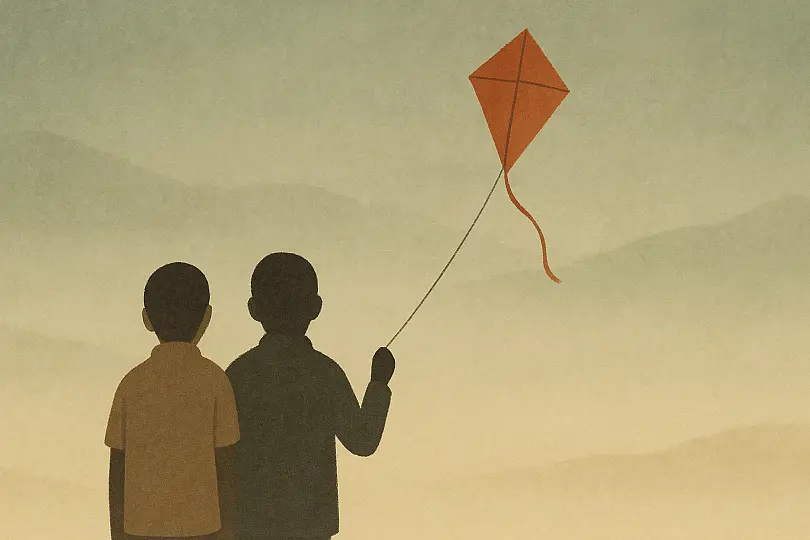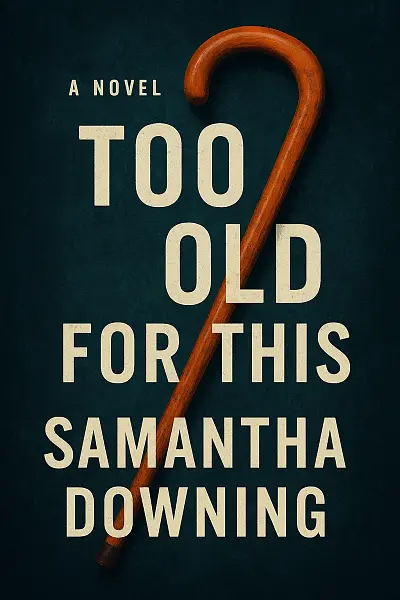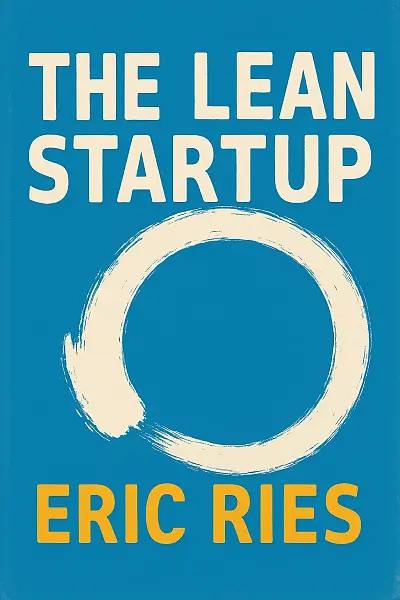
The Kite Runner
by: Khaled Hosseini
Amir grows up in 1970s Kabul, cocooned in privilege but desperate for his father's approval, while his loyal friend Hassan longs only for acceptance. Their peaceful childhood is shattered when a fateful winter kite fight leads to an act of betrayal that changes their relationship forever.
As Afghanistan plunges into turmoil, Amir is haunted by guilt and driven by the hope of redemption. What’s really on the line isn’t just friendship or family—it’s the possibility of forgiveness, both from others and from himself.
Hosseini’s prose is intimate, full of nostalgia, and heartbreakingly honest. The big question lingers: can Amir ever make things right?
"“To heal the wounds of the past, one must gather the courage to face them beneath the light of truth.”"
Let's Break This Down
The Author's Voice
Atmosphere
Expect a deeply immersive, emotionally charged world that pulses with nostalgia, regret, and yearning. Hosseini captures both the shimmering beauty and dark turbulence of Afghanistan, from idyllic pre-war Kabul to the shadowed desolation of conflict. The mood swings between hope and heartbreak, suffused with a constant sense of loss and longing that lingers over the pages.
Prose Style
Smooth, vivid, and deeply evocative — yet refreshingly straightforward. Hosseini’s prose isn’t ornate or showy; it’s rich in texture through simple yet devastatingly effective descriptions. He balances lyricism with readability, blending understated metaphors, arresting imagery, and authentic dialogue. Expect sentences that quietly tug at your heart, weaving emotional resonance into every scene without overwhelming poetic flourishes.
Pacing
Measured and steady, rarely rushed but never plodding. The narrative unfolds with a gentle, almost patient build, layering character histories and cultural context so you’re fully invested before key moments strike. Some stretches linger on the details of memory or the ache of guilt, while pivotal events accelerate with gut-punch immediacy. The story’s tempo mirrors its themes—revelations arrive with the weight of years, but when the plot turns, you’ll feel it sharply.
Character Focus
Deeply introspective, intimate, and emotionally raw. Most of the book dwells inside Amir’s mind, unpacking his tangled motives and insecurities. Supporting characters are sketched with empathy and nuance, but the spotlight is always intensely personal, exposing inner conflicts and emotional wounds with unflinching honesty.
Dialogue & Voice
Realistic, subtly layered, and brimming with undercurrents. Characters often communicate as much through what they don’t say as what they share, lending authenticity and tension to conversations. There’s an unmistakable blend of Afghan cultural flavor and universal human yearning that comes through in every exchange.
Overall Feel
Heart-wrenching, reflective, and unforgettable. If you enjoy stories that linger after the last page—filled with moral complexity, cultural richness, and emotional catharsis—The Kite Runner’s style will pull you in and stay with you long after you’ve finished.
Key Moments
-
The betrayal in the alley that haunts for decades
-
"For you, a thousand times over" — a line that’ll echo in your mind long after
-
Hosseini’s lyrical prose pulls you right into Kabul’s lost innocence
-
Guilt and redemption collide on that fateful return to Afghanistan
-
Amir and Hassan: a friendship as fragile as a childhood kite
-
Jaw-dropping secret that unravels family ties and loyalties
-
Page-turning tension during the Taliban-ruled Kabul rescue—raw and unforgettable
Plot Summary
The Kite Runner traces the intertwined lives of Amir and Hassan, two boys growing up in 1970s Kabul. Amir, plagued by his desire for his father's affection, betrays Hassan in a moment of cowardice after witnessing Hassan's assault. Wracked by guilt, Amir flees with his father to America during the Soviet invasion, leaving Hassan behind. Years later, Amir is summoned back to Taliban-ruled Afghanistan by his father's friend Rahim Khan, who reveals deep family secrets, including that Hassan was Amir’s half-brother. Risking his life, Amir attempts to atone for his past by rescuing Hassan’s son, Sohrab, from abuse, finally achieving a measure of redemption through self-sacrifice and compassion.
Character Analysis
- Amir starts as a privileged but insecure boy desperate for his father’s approval, whose guilt over betraying Hassan shapes his journey. His character transforms through self-awareness, grappling with cowardice, and choosing redemption despite risk.
- Hassan, ever loyal and morally resolute, embodies innocence and steadfastness, even as he suffers betrayal and tragedy, ultimately remaining a symbol of unwavering love.
- Baba, Amir’s imposing father, is a man of complex principles and secrets, whose rigid expectations and hidden flaws drive Amir’s insecurity. Over time, Baba softens, finding a different kind of strength as an immigrant.
- Assef, the antagonist, is chillingly sociopathic, representing the evil and cruelty woven through Afghanistan’s darker moments, and serving as a foil to Amir’s conscience.
Major Themes
- Redemption and Guilt: Amir’s overarching drive is to seek redemption for his betrayal of Hassan, with the message that atonement is always possible but demands courage, as seen when Amir risks everything to save Sohrab.
- Father-Son Relationships: The novel explores complicated parental bonds, especially between Amir and Baba, underscoring loyalty, expectation, and reconciliation.
- Social Class and Ethnic Tensions: The division between Pashtuns and Hazaras, reflected in Amir and Hassan’s friendship, exposes deep cultural prejudices and their devastating impact.
- The Cycle of Violence and Forgiveness: Through acts of betrayal, abuse, and later acts of protection, the novel ponders whether cycles of harm can be broken through empathy and sacrifice.
Literary Techniques & Style
- Hosseini’s writing is rich in sensory detail and vivid imagery, bringing old Kabul to life while juxtaposing innocence with brutality.
- He employs a first-person narrative that draws readers intimately into Amir’s guilt, reflection, and growth.
- Symbolism is central: the kite represents both betrayal and redemption, while Sohrab’s slingshot mirrors Hassan’s earlier protection of Amir.
- Foreshadowing, metaphor, and nuanced flashbacks add depth to character motives and the unfolding of family secrets, keeping readers engaged while inviting them to question morality and loyalty.
Historical/Cultural Context
Set across multiple decades, the novel weaves personal drama with the backdrop of Afghanistan’s tumultuous history, from the peaceful monarchic Kabul of the 1970s, through the Soviet invasion, to the rise of the Taliban. The shifting political climate drives the characters' choices and fates, reflecting the country's fragmentation and diaspora. Deep-rooted ethnic and social hierarchies (Pashtun vs. Hazara) play a defining role in characters' relationships and personal identities.
Critical Significance & Impact
The Kite Runner was a breakout success, widely praised for bringing Afghan culture and history to a global audience while exploring universal themes of forgiveness and belonging. Its emotional honesty, moral complexity, and accessible style have made it a modern classic in classrooms and book clubs. The novel’s examination of conscience, cultural identity, and personal growth keeps it powerfully relevant and resonant today.

Betrayal and forgiveness unfold across a war-torn Afghan childhood
What Readers Are Saying
Right for You If
If you love emotionally charged stories that dig deep into family dynamics, friendship, and redemption, The Kite Runner is probably going to hit you right in the feels. This one’s made for people who get totally absorbed in coming-of-age tales and are drawn to books that explore complicated relationships—especially if you don’t mind a few tears along the way.
If you’re a fan of:
- Historical fiction that isn’t just about the facts, but about real people living through massive change
- Novels with layered, relatable characters who aren’t always perfect (and sometimes make you want to yell at them)
- Stories about family secrets, guilt, forgiveness, and how the past never really stays buried
- Lyrical writing that sweeps you away and paints a vivid picture of different cultures (Afghanistan in particular)
…then this book should definitely be near the top of your TBR stack.
But honestly, if you prefer fast-paced thrillers or light, feel-good reads, The Kite Runner might feel a bit heavy. This book doesn’t shy away from difficult topics—it dives into trauma, betrayal, and some dark moments that can be pretty tough to read. So if you’re not in the mood for something emotional or you want a story with clear-cut heroes and villains, you probably won’t vibe with this one.
Best for:
- Fans of literary fiction and character-driven narratives
- Readers who like novels that make you think (and maybe cry)
- People interested in stories that go beyond their own cultural bubble
Skip it if:
- You just want a light, escapist read
- Heavy themes and morally messy characters aren’t your thing
- You need a story that wraps up every loose end with a bow
Basically, if you appreciate books that stay with you long after you’ve turned the last page, this one is calling your name.
What You're Getting Into
Set against the vibrant yet turbulent backdrop of Afghanistan, The Kite Runner follows the complicated friendship between two young boys, Amir and Hassan, whose lives are shaped by loyalty, betrayal, and the shifting sands of history.
As secrets and guilt linger over decades, Amir embarks on a heartfelt journey of self-discovery and redemption—one that forces him to confront the haunting echoes of his past.
Raw, emotional, and deeply human, this novel blends coming-of-age, family drama, and sweeping cultural portrait to create a story that will stick with you long after the last page.
Characters You'll Meet
-
Amir: The conflicted narrator whose need for his father's approval drives many of his choices. His emotional journey from guilt and cowardice to redemption is the novel’s emotional backbone.
-
Hassan: Amir’s loyal Hazara friend and servant, defined by his unwavering loyalty and innocence. His suffering and the betrayal he endures form the novel’s moral center.
-
Baba: Amir’s charismatic but distant father, whose secret past and complex morals overshadow his relationship with Amir. His struggle to do right by both his sons pulses beneath the story's surface.
-
Assef: The novel’s primary antagonist, gleefully cruel and fanatical. He personifies the threat of cruelty, prejudice, and abuse of power that pervade the book.
-
Sohrab: Hassan’s son, whose tragic circumstances mirror those of his father. His rescue becomes Amir’s chance for atonement and hope for personal healing.
More Like This
If you were swept away by the emotional complexity and deep moral questioning in A Thousand Splendid Suns, you’ll find that The Kite Runner offers a similarly poignant exploration of personal betrayal, cultural upheaval, and the enduring bonds of family and friendship. Both novels immerse readers in Afghanistan’s rich yet tumultuous history through intimate, character-driven storytelling, although each approaches its themes from unique, equally compelling angles.
Fans of To Kill a Mockingbird will recognize echoes of inner conflict and the struggle for redemption in Amir’s journey—both books feature young protagonists forced to confront difficult truths about themselves and the worlds they inhabit. The sense of longing for forgiveness and the weight of past choices linger in much the same heart-pulling way.
Cinematically, The Kite Runner resonates with the bittersweet nostalgia and powerful flashbacks found in films like Slumdog Millionaire. That feeling of navigating trauma and memory amid rapidly shifting cultural landscapes brings a visceral immediacy to both stories, making them intensely relatable whether you’re drawn in by the harrowing plot twists or the evocative sense of place.
Critic's Corner
Does a single moment define a life, or can years of guilt be washed away by a single act of courage? The Kite Runner throws readers into this stormy question, daring us to confront the fault lines that run through families, friendships, and entire nations. Khaled Hosseini doesn’t simply ask what it means to betray—he asks what it means to live with betrayal, and whether forgiveness is ever truly possible.
Hosseini’s storytelling hooks you instantly—his prose is elegant yet understated, never showy, and intensely visual. The novel is rich in sensory details: the ricochet of kite strings, the scent of dust and pomegranate, the clamor of Kabul’s streets—all brought to vivid life. Hosseini alternates between delicate, interior moments and larger, wrenching turns of fate, controlling pacing with a deft touch. His use of first-person narration lends the story both intimacy and reliability, even as it exposes the protagonist’s flaws. Dialogue rings emotionally true, capturing the gulf between generations, classes, and even the same two friends across the years. While some metaphors feel a bit obvious—kites, for instance, verge on heavy-handed as symbols—the earnestness of the writing earns our forgiveness. Minor characters often leap off the page, their fates lingering long after their scenes have passed.
At its core, The Kite Runner is a meditation on the messy, necessary work of redemption. It wrestles with cycles of violence, the guilt of privilege, and the often-toxic inheritance between fathers and sons. Subtly, Hosseini foregrounds Afghanistan’s tumultuous history—not as background noise, but as a force shaping every decision and heartbreak. The novel’s authenticity is anchored by its attention to Afghan culture and politics, neither romanticizing nor exoticizing the unfamiliar. Universal questions—about shame, forgiveness, and the costs of silence—swirl beneath the surface. Particularly resonant is the way trauma, individual and collective, seeps through generations. In our era, when displacement and cultural misunderstanding still dominate headlines, the book feels as urgent as ever.
Within contemporary literary fiction, Hosseini’s debut achieved the rare balance of broad commercial appeal and genuine artistic ambition. It sits comfortably alongside works like Arundhati Roy’s The God of Small Things—intimate, political family sagas transcending their time and place. Unlike many immigrant narratives, however, The Kite Runner bridges two worlds without flattening either.
If the novel has a flaw, it lies in occasional melodrama and plot contrivances that feel more schematic than organic. Yet these are overshadowed by its emotional force and sense of compassion. At its best, The Kite Runner is an unforgettable testament to the possibility of personal and cultural healing. It’s messy, honest, and—like all the best stories—it lingers, long after the final page.
Community Thoughts
Woke up at 3am thinking about Hassan’s loyalty. That kid’s quiet strength haunted me for days. How can a fictional character feel so real? Khaled Hosseini, you wizard, I blame you for my sleep deprivation.
Okay, hear me out: Hassan’s loyalty is on another planet. That kid haunted me. Every time I thought I could shake off the story, his “for you, a thousand times over” line just echoed in my brain.
am i supposed to just move on after hassan’s "for you, a thousand times over"? that line keeps echoing, making me rethink loyalty and regret every time i close the book.
I still hear Hassan’s “For you, a thousand times over” echo in my mind. That loyalty, that heartbreak. The kite tournament scene had my heart pounding, I kept thinking about it long after finishing.
I CAN'T GET HASSAN OUT OF MY HEAD. His loyalty and pain just creep into my thoughts at the weirdest times. Every time I see a kite now, I feel a weird ache. How did a book do this to me?
Leave Your Review
Local Take
Why It Matters
The Kite Runner has a special way of tugging at readers’ hearts here because its themes—like guilt, redemption, and the complexities of friendship and family—resonate powerfully against our own backdrop of social shifts and unspoken taboos.
- The novel’s backdrop of political upheaval and trauma mirrors our own historic periods of change—think post-dictatorship years or times of social unrest—and that adds a deeply personal sting to the betrayals and reconciliations Amir experiences.
- The pressure to meet family expectations and maintain honor? That’s a struggle so many here know all too well, making Amir’s relationship with Baba feel oddly familiar and raw.
- Some plot points, especially around class divides and loyalty, take on an extra punch, since our society is still untangling old hierarchies and wrestling with who belongs and who’s “other.”
- Stylistically, Hosseini’s gentle yet honest storytelling echoes our favorite classic literary voices—but he’s unafraid to dig into emotional messiness that’s sometimes avoided in local fiction, which really grabs attention.
It’s this mix of universal pain and hyper-specific cultural echoes that makes The Kite Runner linger in readers’ minds here.
Food for Thought
The Kite Runner has faced controversy for its vivid depiction of sexual violence, ethnic tensions, and criticism of Afghan society. Some readers and groups argued the novel reinforces negative stereotypes about Afghanistan and sparked debates within Afghan communities about cultural representation and sensitive content.
Like what you see? Share it with other readers







